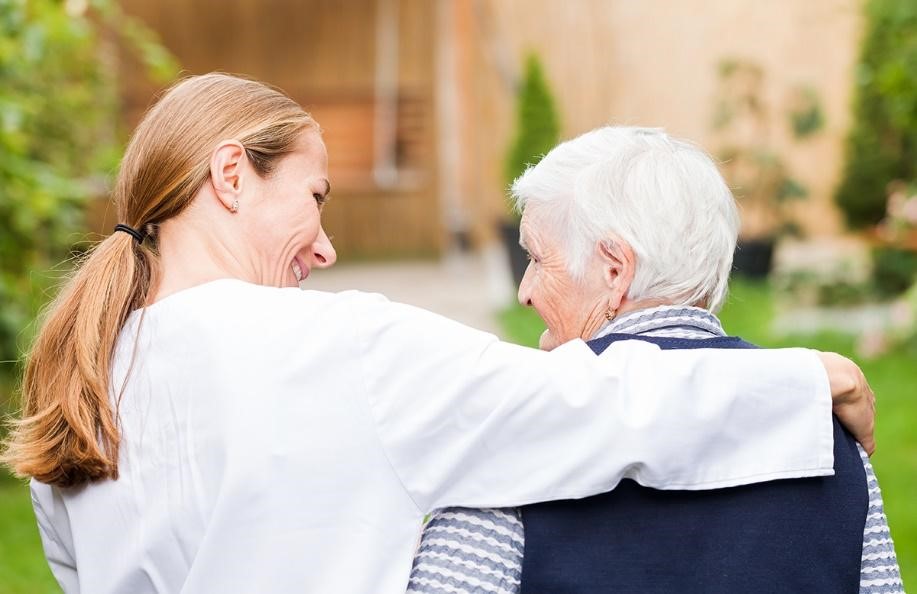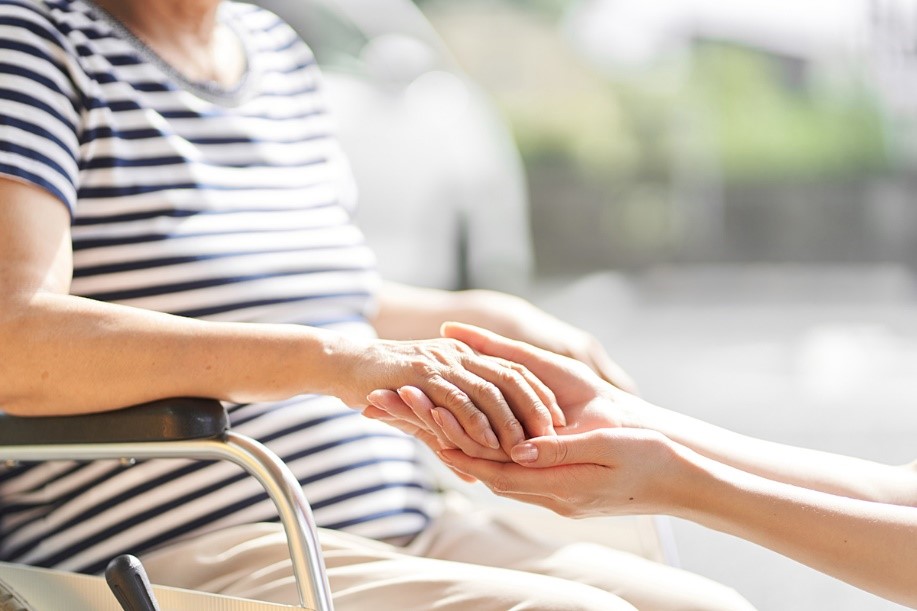Hypertension, or high blood pressure, is a common concern among the elderly population.
With age, the flexibility of our blood vessels diminishes, leading to a general rise in blood pressure levels. High blood pressure in the elderly can lead to a variety of health problems, including increased risk of heart attack and stroke, kidney disease, vision problems, cognitive impairment, reduced mobility and falls.
It’s important for elderly individuals and their caregivers to have a target blood pressure goal, monitor their blood pressure regularly and work with a health care provider to manage hypertension through lifestyle changes and/or medication.
General target blood pressures in the elderly
Blood pressure is measured with two numbers: The first, systolic blood pressure, gauges the force exerted on your artery walls during a heartbeat. Diastolic pressure, the second number, measures the arterial pressure during the resting phase between heartbeats.
The recommended blood pressure targets for the elderly may vary depending on the overall health of the individual and presence of other medical conditions. However, in general, the American College of Cardiology and the American Heart Association recommend that blood pressure should be less than 130/80 mmHg for individuals aged 65 years or older.
For individuals who have diabetes or chronic kidney disease, the target blood pressure may be even lower. Since each person is different, working with a health care professional to establish a suitable blood pressure goal tailored to individual health considerations is crucial.
Effects of intensive blood pressure control on mortality
Studies have shown that intensive blood pressure control can have a significant effect on reducing mortality rates in individuals with hypertension.
The Systolic Blood Pressure Intervention Trial (SPRINT), a large-scale randomized controlled trial, found that among adults with hypertension and an increased risk of cardiovascular disease, targeting a systolic blood pressure of less than 120 mmHg, as compared to less than 140 mmHg, resulted in lower rates of death from any cause (27.6% lower) and lower rates of heart failure, but with an increased risk of side effects such as hypotension and acute kidney injury.
The Hypertension in the Very Elderly Trial (HYVET) found that in individuals over 80 years of age, treating high blood pressure with medication resulted in a significant reduction in the risk of death from any cause, as well as a lower incidence of stroke.
Overall, these studies suggest that intensive blood pressure treatment can help to reduce mortality rates in individuals with hypertension, especially in those at higher risk of cardiovascular disease. However, it’s important to work with a health care provider to determine an appropriate blood pressure target for both systolic blood pressure and diastolic blood pressure and create an individualized treatment plan based on personal health factors.
Caregivers offer accountability
It may be difficult for seniors alone to make the lifestyle changes necessary to reach normal blood pressure levels. Caregivers offer accountability that may be helpful and necessary to achieve lower blood pressure targets, from high to elevated blood pressure, to normal blood pressure.
To meet blood pressure goals, elderly caregivers can help the person they are caring for stay on track with daily activities such as meal times, exercise routines, medications and appointments. They can provide encouragement and support along the way and offer structure to help the person build new habits, stay organized and accountable, and improve their quality of life.
Strategies to manage blood pressure
A healthy diet
A healthy diet can help manage blood pressure in seniors in a number of ways.
- Reducing sodium intake: Consuming a sodium-rich diet can elevate blood pressure as it leads to water retention and a subsequent increase in blood volume within the body. Seniors can decrease blood pressure and minimize the likelihood of hypertension by cutting down on their sodium consumption.
- Increasing potassium intake: Potassium is a vital mineral that counteracts the impact of sodium in the body and assists in reducing blood pressure. Consuming a potassium-abundant diet can aid seniors in regulating their blood pressure and enhancing their general well-being.
- Emphasis on whole foods: A diet abundant in whole foods, including fruits, vegetables, whole grains, lean proteins and healthy fats, can promote overall heart health and decrease the likelihood of cardiovascular disease. Additionally, this can aid in decreasing inflammation and reducing blood pressure.
- Reducing alcohol consumption: Overindulging in alcohol can lead to increased blood pressure, while cutting down on alcohol consumption can assist in lowering blood pressure and minimizing the chances of developing hypertension.
Regular exercise
Seniors who are managing high blood pressure can benefit from exercising regularly. Below are some exercise forms that are especially advantageous for seniors dealing with hypertension:
- Aerobic exercise: Engaging in aerobic activities, like walking, biking, or swimming, can aid in reducing blood pressure and enhancing heart health.
- Strength training: Participating in strength training activities, such as weightlifting or utilizing resistance bands, can assist in increasing muscle mass and enhancing strength, which may contribute to decreased blood pressure.
- Stretching: Stretching exercises, such as yoga or Pilates, can help to improve flexibility and balance, which can be important for preventing falls and reducing the risk of injury.
- Tai chi: Tai chi is a mild exercise form that integrates motion, deep breathing and relaxation methods. This practice has been demonstrated to aid in decreasing blood pressure and alleviating stress among older adults.
Before embarking on any new exercise program, seniors should consult their health care professional to ensure the measures being taken meet standard blood pressure control.
Quitting smoking
Seniors with high blood pressure should stop smoking for a multitude of reasons, primarily to improve their overall health and reduce the risk of life-threatening complications. Smoking is known to exacerbate high blood pressure, as it causes the blood vessels to constrict, forcing the heart to work harder to pump blood throughout the body. This increased strain on the heart can lead to a higher risk of heart attack, stroke, and other cardiovascular diseases.
Moreover, smoking has been linked to various other health issues such as chronic obstructive pulmonary disease (COPD), lung cancer, and respiratory infections, all of which can be particularly detrimental for seniors who are already dealing with high blood pressure. Additionally, the chemicals present in cigarettes can negatively impact the effectiveness of blood pressure medications, making it even more challenging to manage the condition.
Not smoking is a blood pressure lowering strategy that seniors should strive to live by. Taking this step can greatly enhance their life quality and possibly prolong their life expectancy.
Regulated stress levels
Seniors with high blood pressure should regulate their stress levels as an essential part of managing their overall health and well-being. Chronic stress has been shown to have a direct impact on blood pressure, causing it to rise temporarily. When stress is constant, it may result in prolonged high blood pressure, exposing older adults to a heightened risk of heart-related ailments, including heart attacks.
Medication
Medications for high blood pressure work in various ways to help regulate and lower blood pressure, such as by relaxing blood vessels, reducing the amount of fluid in the body, or slowing down the heart rate. When used as directed by a medical expert, these drugs can substantially lower the likelihood of severe complications linked to high blood pressure.
It is essential for seniors with high blood pressure to regularly consult with their health care providers to discuss their treatment options and ensure they are taking the most appropriate medication for their specific needs. Additionally, seniors should be aware of potential side effects and interactions that may occur with other medications they are taking, and report any concerns to their health care provider promptly.
Cherished Companions live-in care services
Cherished Companions provides live-in care services in Chagrin Falls to seniors who may need help managing their high blood pressure, offering a comprehensive and personalized approach to support their health and well-being.
By having a dedicated caregiver living in the home, seniors can receive around-the-clock assistance with managing their condition, including medication reminders, measuring blood pressure and ensuring adherence to doctor-recommended treatments.
In addition to medical support, live-in caregivers can help seniors adopt and maintain a healthy lifestyle by preparing nutritious meals tailored to their dietary needs, encouraging regular physical activity and providing emotional support to reduce stress levels.
Live-in caregivers can assist with daily tasks such as personal care, housekeeping and transportation to medical appointments, allowing seniors to focus on their health and enjoy a higher quality of life.
By fostering a strong bond between the caregiver and the senior, Cherished Companions can create a supportive and nurturing environment that empowers seniors with high blood pressure to take control of their health and age gracefully within the comfort of their own homes.
Contact us today. We look forward to serving you.






